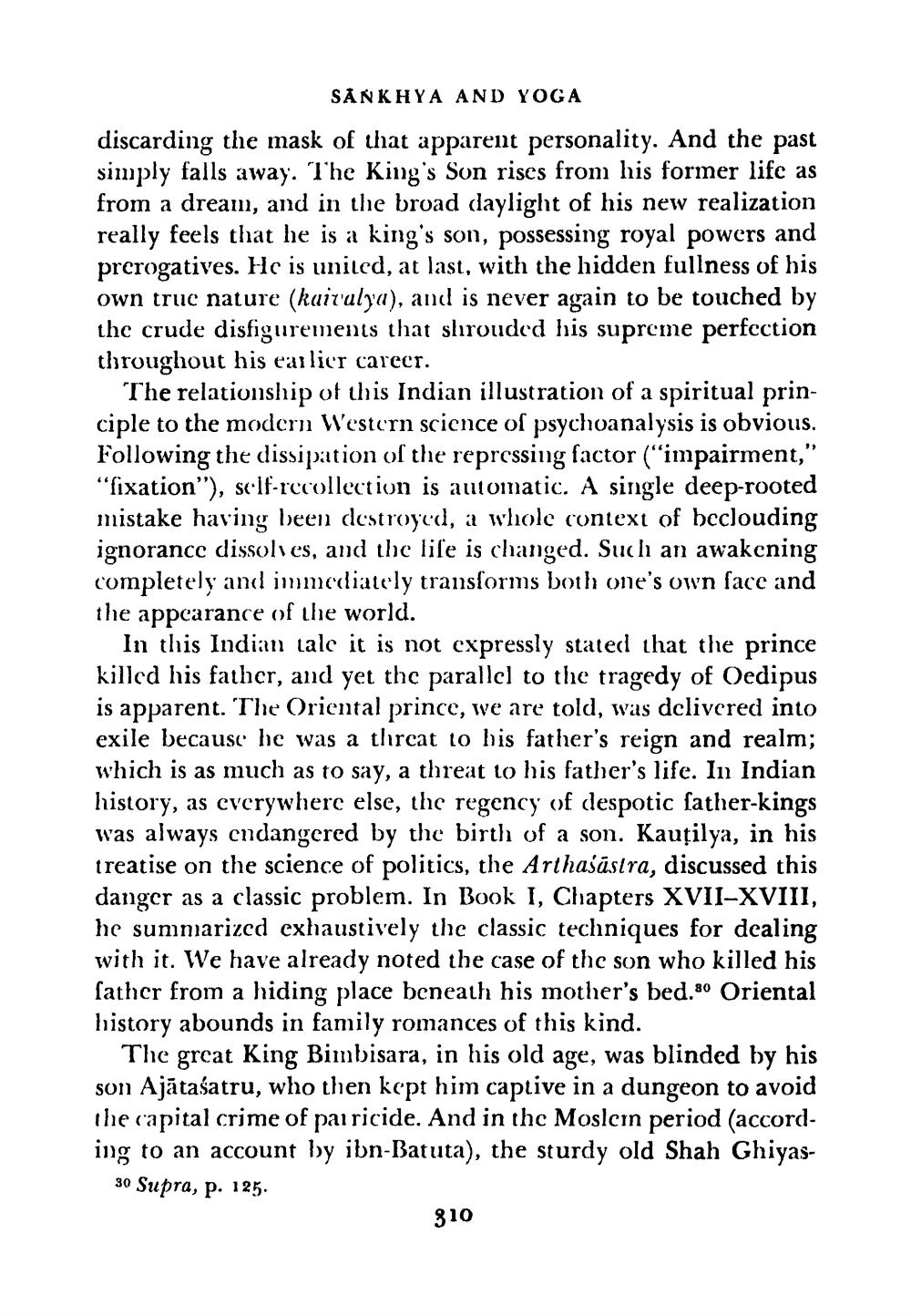________________
SANKHYA AND YOGA
discarding the mask of that apparent personality. And the past simply falls away. The King's Son rises from his former life as from a dream, and in the broad daylight of his new realization really feels that he is a king's son, possessing royal powers and prerogatives. He is united, at last, with the hidden fullness of his own true nature (kaivalya), and is never again to be touched by the crude disfigurements that shrouded his supreme perfection throughout his earlier career.
The relationship of this Indian illustration of a spiritual principle to the modern Western science of psychoanalysis is obvious. Following the dissipation of the repressing factor ("impairment," "fixation"), self-recollection is automatic. A single deep-rooted mistake having been destroyed, a whole context of beclouding ignorance dissolves, and the life is changed. Such an awakening completely and immediately transforms both one's own face and the appearance of the world.
In this Indian tale it is not expressly stated that the prince killed his father, and yet the parallel to the tragedy of Oedipus is apparent. The Oriental prince, we are told, was delivered into exile because he was a threat to his father's reign and realm; which is as much as to say, a threat to his father's life. In Indian history, as everywhere else, the regency of despotic father-kings was always endangered by the birth of a son. Kautilya, in his treatise on the science of politics, the Arthaśāstra, discussed this danger as a classic problem. In Book I, Chapters XVII-XVIII, he summarized exhaustively the classic techniques for dealing with it. We have already noted the case of the son who killed his father from a hiding place beneath his mother's bed.80 Oriental history abounds in family romances of this kind.
The great King Bimbisara, in his old age, was blinded by his son Ajataśatru, who then kept him captive in a dungeon to avoid the capital crime of parricide. And in the Moslem period (according to an account by ibn-Batuta), the sturdy old Shah Ghiyas30 Supra, p. 125.
310




